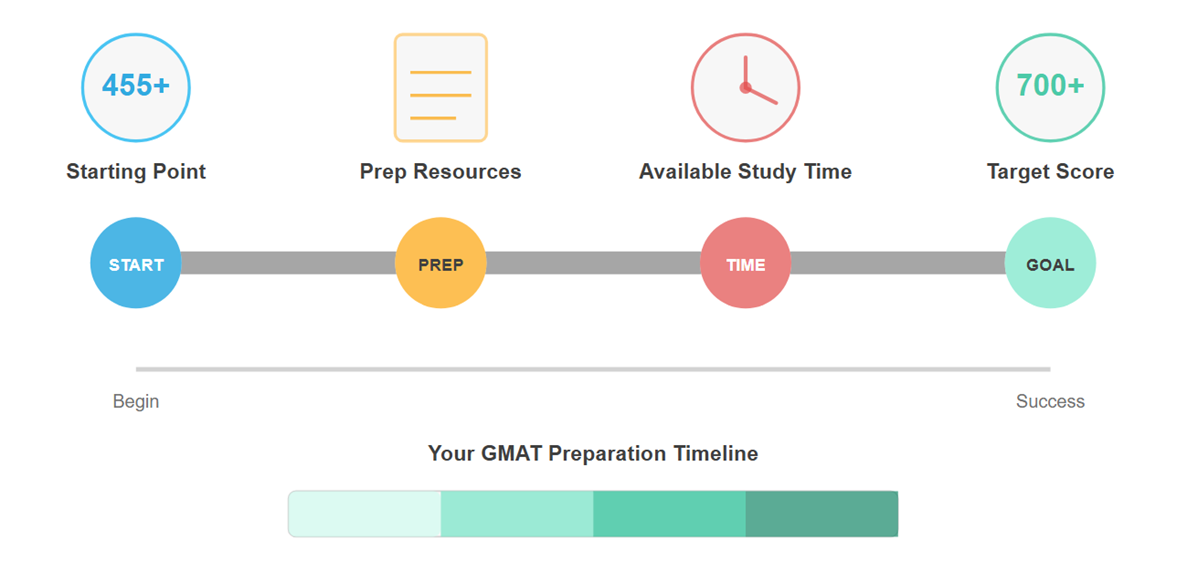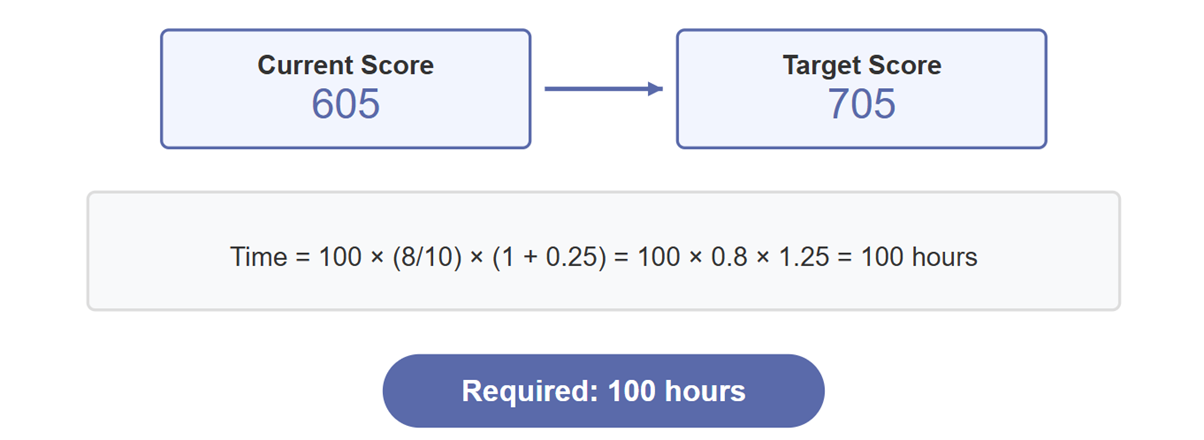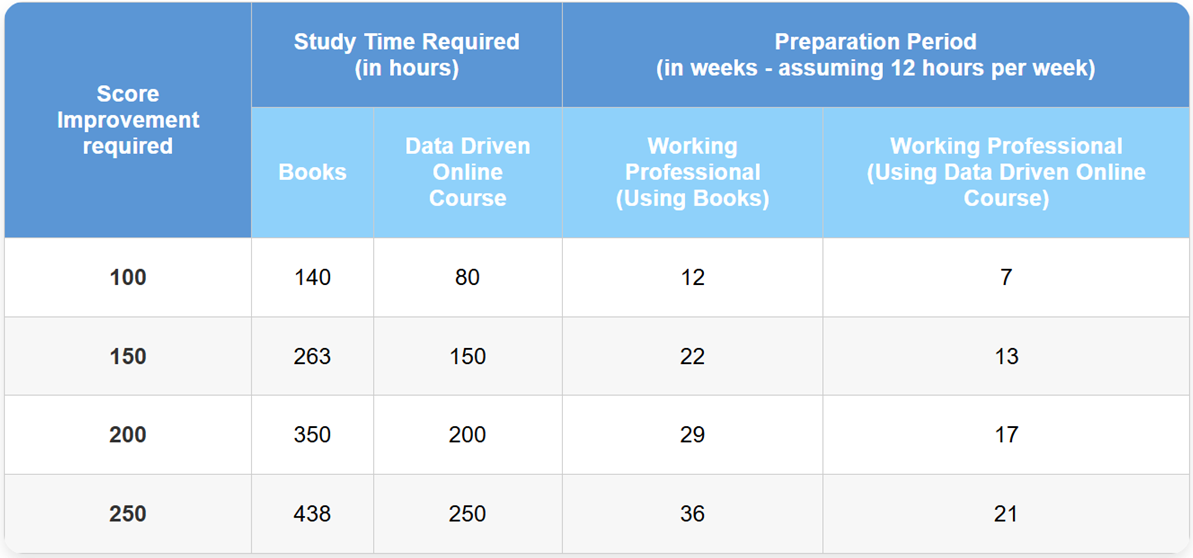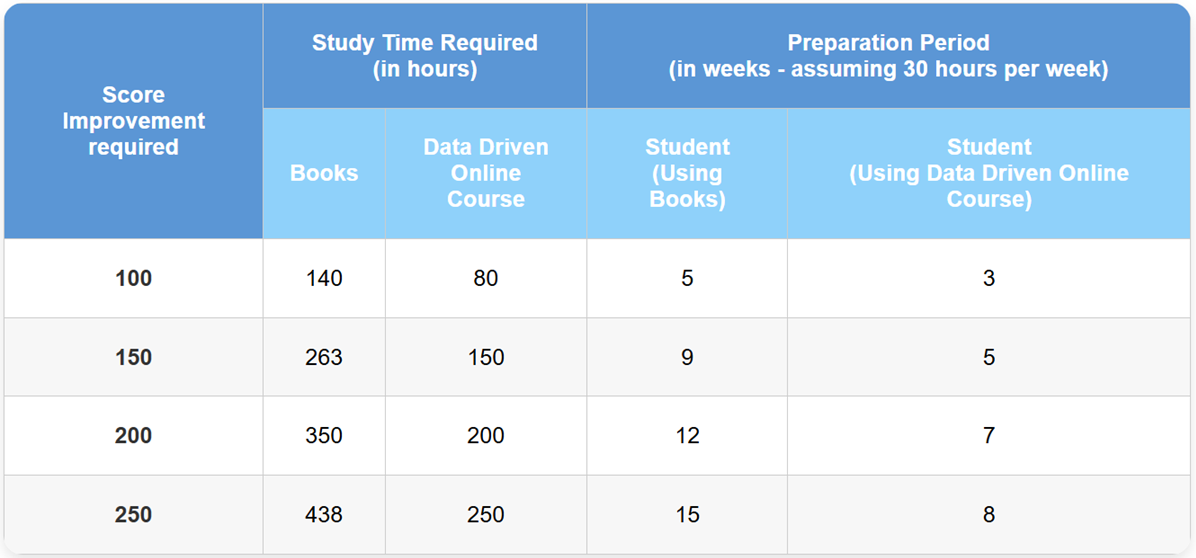Events & Promotions
|
|

GMAT Club Daily Prep
Thank you for using the timer - this advanced tool can estimate your performance and suggest more practice questions. We have subscribed you to Daily Prep Questions via email.
Customized
for You
Track
Your Progress
Practice
Pays
Not interested in getting valuable practice questions and articles delivered to your email? No problem, unsubscribe here.
- Nov 20
07:30 AM PST
-08:30 AM PST
Learn what truly sets the UC Riverside MBA apart and how it helps in your professional growth - Nov 22
11:00 AM IST
-01:00 PM IST
Do RC/MSR passages scare you? e-GMAT is conducting a masterclass to help you learn – Learn effective reading strategies Tackle difficult RC & MSR with confidence Excel in timed test environment - Nov 23
11:00 AM IST
-01:00 PM IST
Attend this free GMAT Algebra Webinar and learn how to master the most challenging Inequalities and Absolute Value problems with ease. - Nov 25
10:00 AM EST
-11:00 AM EST
Prefer video-based learning? The Target Test Prep OnDemand course is a one-of-a-kind video masterclass featuring 400 hours of lecture-style teaching by Scott Woodbury-Stewart, founder of Target Test Prep and one of the most accomplished GMAT instructors.
Kudos
Bookmarks
One of the most commonly asked questions in the GMAT prep space is: "How much time will I need to reach my target score?" Whether it's someone targeting 700+ or just trying to cross the 650 threshold, the question is the same. And it makes sense - planning your prep timeline is crucial when you're balancing work, applications, and life.
Here's the truth: GMAT preparation time varies dramatically between individuals. I've seen students score 715 with just 30 days of preparation, while others needed 18 + months of consistent study to achieve the same result.
The good news? You can actually calculate a realistic timeline based on your specific situation. In this post, I'll walk you through the four critical factors that determine your personal GMAT prep timeline, show you a formula to calculate your study hours, and provide real-world scenarios to help you plan effectively.
The Four Critical Factors That Determine Your GMAT Prep Timeline
The most common mistake GMAT test-takers make is basing their preparation timeline on someone else's experience. Your friend's 6-week study sprint might leave you burned out and underprepared, while following another's 8-month plan might be unnecessarily long for your situation.
Instead, focus on these four critical factors that will determine your personal GMAT timeline:
 Your Starting Point
Your Starting Point
Where you begin has a massive impact on how long your journey will be. Someone starting at 455 will need significantly more time to reach 700+ than someone starting at 605. For first-time test-takers, take a diagnostic test after reviewing basic concepts to get an accurate baseline. If you're retaking the exam, your previous score is your baseline but be honest about whether you've maintained your knowledge since then.
Your Target Score
Be strategic about your target. While aiming high is good, be realistic about what you need. Research the average GMAT scores at your target schools and aim for about 20 points above the average (or 30+ points if you're from an overrepresented applicant pool). Remember that each additional 10 points becomes exponentially harder as you go up the scale, especially once you cross the 700 threshold.
Your target score is very important in deciding the schools that you will get into. We have written an article on what is a good GMAT score that you need for top B-Schools.
Your Prep Resources
The quality and type of your study materials significantly impact your timeline. Data-driven online courses typically require around 8 hours per 10-point improvement, while book-based preparation often needs about 14 hours per 10-point improvement.
What do I mean by "data-driven online courses"? These are programs that don't just throw content at you - they actually track how you're doing and give you regular feedback on your progress. This means you'll know exactly where you're falling short and can adjust your approach before wasting hours on ineffective studying. The personalized feedback loop is why these resources tend to be more time-efficient than traditional books.
Using mixed resources falls somewhere in between, but often with diminishing returns due to content overlap. Choosing the right resources for your learning style can dramatically reduce your prep time.
Your Available Study Time
Be brutally honest about how much quality study time you can consistently dedicate. Working professionals might realistically commit to 2 hours on weekdays and 3-4 hours on weekends, while full-time students might maintain 4+ hours daily. What matters most is consistency and quality - 2 hours of distraction-free study beats 4 hours of interrupted learning.
Our data shows that 65% of GMAT students overcommit to unrealistic study schedules of 20+ hours weekly, with only 5% meeting their targets. Read more here: "Setting yourself up for failure? Data shows 65% of GMAT students make this critical mistake."
One critical factor that dramatically affects your timeline is your ability to focus on one topic at a time. I call this the "diligence factor," and it can make or break your prep efficiency. If you're constantly jumping between Quant, Verbal, and different question types without completing your learning in one area first, you'll likely need about 50% more study time overall. This is especially crucial in the initial phase of your preparation.
For example, studying CR consistently for two weeks until you've mastered it will be far more efficient than switching to RC after three days, then jumping to Quant, and then back to CR. If you know you struggle to focus on one subject area for extended periods, be realistic and add buffer time to your preparation schedule.
Your weekly available hours will determine how many calendar weeks or months you'll need to accumulate your total required study hours.
Calculating Your GMAT Timeline
Now for the practical part: calculating how many hours you'll actually need to study. While everyone's learning curve is different, there's a data-backed formula that provides a solid starting point:

Let's break this down:
The CBT factor accounts for any foundational weaknesses you might have. If you're extremely weak in either Quant or Verbal (scoring below the 40th percentile), use 0.25. If you're scoring above 645 total, you can probably use 0.0, focusing only on targeted improvement.
Let us take an example:

If you're using primarily books instead of online resources, increase this to about 150 hours (using 14/10 instead of 8/10).
Remember, this calculation gives you study hours, not calendar time. To convert to weeks or months, you need to factor in your available study time, which brings us to our real-world scenarios.
Two Real-World GMAT Prep Scenarios
Let's see how this formula works in practice with two common scenarios featuring different starting points:
Scenario #1: The Working Professional
Meet Raj, a consultant working 60+ hours per week. He took a diagnostic test and scored 555 after some basic review. His target score is 705 for his dream schools.
Here's Raj's calculation:
Now, many working professionals make the mistake of overestimating available study time. While Raj initially thought he could dedicate 18 hours weekly, a realistic assessment shows that with his high-intensity job, he can actually commit to:
Calendar time needed: 150 ÷ 12 = 12.5 weeks (about 3 months)
This is a much more sustainable timeline that accounts for work emergencies, mental fatigue, and necessary downtime. Research shows that around 55% of test-takers overestimate their available study time, leading to disappointment and extended preparation periods.

Scenario #2: The Full-Time Student
Maya is a college senior with more flexible time. Her starting point is 635, and she's aiming for 705 to match her target schools' competitive averages.
Her calculation:
While Maya initially thought she could study 60 hours per week with her open schedule, the reality is that maximum effective study time tops out at about 30 hours weekly. Beyond this, comprehension and retention drop significantly. Her realistic schedule:
Calendar time needed: 56 ÷ 30 = 1.9 weeks (about 2 weeks)
Though this is still an intensive schedule, it's within the bounds of what's actually achievable while maintaining effective learning.

Key takeaway:
Both the required score improvement AND your weekly availability dramatically affect your timeline. A lower starting point requires more preparation time, but this can be offset somewhat by more intensive study (if your schedule allows it).
Be conservative when estimating your weekly study capacity. It's better to plan for a slightly longer timeline and finish early than to set unrealistic expectations and fall behind.
Creating Your Personalized GMAT Timeline
Now that you understand how to calculate your required hours, here's how to create an effective personalized timeline:

Set Realistic Milestones
The formula provides an estimate, not a guarantee. Everyone's learning curve is different, and factors like your educational background, familiarity with standardized tests, and learning style will influence your actual progress. Be honest with yourself about your strengths and weaknesses when planning your timeline, and don't compare your journey to others who may have different starting points or circumstances.
Use a Personalized Study Plan
A personalized GMAT study plan can help reduce your preparation time by up to 40+ hours if you're short on time and application deadlines are approaching. If you have more flexibility, a well-structured plan can help you score up to 50 points higher than studying without one. This can significantly improve your chances of admission to top programs and help with scholarship opportunities.
Maintain Consistency
For the formula to work accurately, you need to study consistently without taking long breaks (no more than a week) between sessions. The effectiveness of your study hours depends on continuity - frequent interruptions will extend your timeline beyond what the formula predicts.
Track Your Progress
To ensure you're on pace to hit your target score, use these two methods mentioned in the article:
Account for Your Schedule
As we saw in the scenarios, the same number of required study hours will translate to different calendar timelines based on your weekly availability. A working professional might spread 130 hours across 8-10 weeks, while a full-time student could complete the same material in 4-6 weeks.
Remember that this formula works with the assumptions that you're studying consistently, using one primary resource, and following a coherent strategy rather than frequently changing your approach.
Let us sum it up:
GMAT Club is filled with success stories featuring wildly different timelines because, as we've seen, the "right" preparation period truly is different for everyone. What matters isn't following someone else's template but understanding the factors that influence your personal GMAT journey.
To recap, your GMAT preparation time depends on:
What's most important is being honest with yourself about your starting point, realistic about your available time, and committed to consistency. A personalized approach that accounts for your unique circumstances will always yield better results than blindly following someone else's path.
If you've used a similar approach to calculate your GMAT prep timeline or have found other factors that significantly affected your study duration, share your experience in the comments. The more data points we have as a community, the better we can help each other navigate this challenging but rewarding process.

GMAT-Club-Forum-bmsne3fl.png [ 104.27 KiB | Viewed 520 times ]

GMAT-Club-Forum-nru7847z.png [ 42.83 KiB | Viewed 509 times ]

GMAT-Club-Forum-njxb93tc.png [ 83.03 KiB | Viewed 506 times ]

GMAT-Club-Forum-oey1g0ba.png [ 135.15 KiB | Viewed 499 times ]

GMAT-Club-Forum-sgrg9vsf.png [ 126.41 KiB | Viewed 497 times ]

GMAT-Club-Forum-r59qdzoj.png [ 84.7 KiB | Viewed 495 times ]
Here's the truth: GMAT preparation time varies dramatically between individuals. I've seen students score 715 with just 30 days of preparation, while others needed 18 + months of consistent study to achieve the same result.
The good news? You can actually calculate a realistic timeline based on your specific situation. In this post, I'll walk you through the four critical factors that determine your personal GMAT prep timeline, show you a formula to calculate your study hours, and provide real-world scenarios to help you plan effectively.
The Four Critical Factors That Determine Your GMAT Prep Timeline
The most common mistake GMAT test-takers make is basing their preparation timeline on someone else's experience. Your friend's 6-week study sprint might leave you burned out and underprepared, while following another's 8-month plan might be unnecessarily long for your situation.
Instead, focus on these four critical factors that will determine your personal GMAT timeline:
Where you begin has a massive impact on how long your journey will be. Someone starting at 455 will need significantly more time to reach 700+ than someone starting at 605. For first-time test-takers, take a diagnostic test after reviewing basic concepts to get an accurate baseline. If you're retaking the exam, your previous score is your baseline but be honest about whether you've maintained your knowledge since then.
Your Target Score
Be strategic about your target. While aiming high is good, be realistic about what you need. Research the average GMAT scores at your target schools and aim for about 20 points above the average (or 30+ points if you're from an overrepresented applicant pool). Remember that each additional 10 points becomes exponentially harder as you go up the scale, especially once you cross the 700 threshold.
Your target score is very important in deciding the schools that you will get into. We have written an article on what is a good GMAT score that you need for top B-Schools.
Your Prep Resources
The quality and type of your study materials significantly impact your timeline. Data-driven online courses typically require around 8 hours per 10-point improvement, while book-based preparation often needs about 14 hours per 10-point improvement.
What do I mean by "data-driven online courses"? These are programs that don't just throw content at you - they actually track how you're doing and give you regular feedback on your progress. This means you'll know exactly where you're falling short and can adjust your approach before wasting hours on ineffective studying. The personalized feedback loop is why these resources tend to be more time-efficient than traditional books.
Using mixed resources falls somewhere in between, but often with diminishing returns due to content overlap. Choosing the right resources for your learning style can dramatically reduce your prep time.
Your Available Study Time
Be brutally honest about how much quality study time you can consistently dedicate. Working professionals might realistically commit to 2 hours on weekdays and 3-4 hours on weekends, while full-time students might maintain 4+ hours daily. What matters most is consistency and quality - 2 hours of distraction-free study beats 4 hours of interrupted learning.
Our data shows that 65% of GMAT students overcommit to unrealistic study schedules of 20+ hours weekly, with only 5% meeting their targets. Read more here: "Setting yourself up for failure? Data shows 65% of GMAT students make this critical mistake."
One critical factor that dramatically affects your timeline is your ability to focus on one topic at a time. I call this the "diligence factor," and it can make or break your prep efficiency. If you're constantly jumping between Quant, Verbal, and different question types without completing your learning in one area first, you'll likely need about 50% more study time overall. This is especially crucial in the initial phase of your preparation.
For example, studying CR consistently for two weeks until you've mastered it will be far more efficient than switching to RC after three days, then jumping to Quant, and then back to CR. If you know you struggle to focus on one subject area for extended periods, be realistic and add buffer time to your preparation schedule.
Your weekly available hours will determine how many calendar weeks or months you'll need to accumulate your total required study hours.
Calculating Your GMAT Timeline
Now for the practical part: calculating how many hours you'll actually need to study. While everyone's learning curve is different, there's a data-backed formula that provides a solid starting point:
Let's break this down:
- [Target Score - Current Score]: The total point improvement you need
- [8/10]: Research shows most students need about 8 hours of quality study time for every 10-point improvement (using online courses)
- CBT: Confidence Building Time factor (0.0 or 0.25)
The CBT factor accounts for any foundational weaknesses you might have. If you're extremely weak in either Quant or Verbal (scoring below the 40th percentile), use 0.25. If you're scoring above 645 total, you can probably use 0.0, focusing only on targeted improvement.
Let us take an example:
If you're using primarily books instead of online resources, increase this to about 150 hours (using 14/10 instead of 8/10).
Remember, this calculation gives you study hours, not calendar time. To convert to weeks or months, you need to factor in your available study time, which brings us to our real-world scenarios.
Two Real-World GMAT Prep Scenarios
Let's see how this formula works in practice with two common scenarios featuring different starting points:
Scenario #1: The Working Professional
Meet Raj, a consultant working 60+ hours per week. He took a diagnostic test and scored 555 after some basic review. His target score is 705 for his dream schools.
Here's Raj's calculation:
- Score improvement needed: 150 points
- Formula: 150 × (8/10) × (1 + 0.25) = 150 hours
Now, many working professionals make the mistake of overestimating available study time. While Raj initially thought he could dedicate 18 hours weekly, a realistic assessment shows that with his high-intensity job, he can actually commit to:
- Weekdays: 1 hour per day × 5 days = 5 hours/week
- Weekends: 3.5 hours per day × 2 days = 7 hours/week
- Total realistic weekly study time: 12 hours/week
Calendar time needed: 150 ÷ 12 = 12.5 weeks (about 3 months)
This is a much more sustainable timeline that accounts for work emergencies, mental fatigue, and necessary downtime. Research shows that around 55% of test-takers overestimate their available study time, leading to disappointment and extended preparation periods.
Scenario #2: The Full-Time Student
Maya is a college senior with more flexible time. Her starting point is 635, and she's aiming for 705 to match her target schools' competitive averages.
Her calculation:
- Score improvement needed: 70 points
- Formula: 70 × (8/10) × (1 + 0) = 56 hours
While Maya initially thought she could study 60 hours per week with her open schedule, the reality is that maximum effective study time tops out at about 30 hours weekly. Beyond this, comprehension and retention drop significantly. Her realistic schedule:
- Weekdays: 4 hours per day × 5 days = 20 hours/week
- Weekends: 5 hours per day × 2 days = 10 hours/week
- Total realistic weekly study time: 30 hours/week
Calendar time needed: 56 ÷ 30 = 1.9 weeks (about 2 weeks)
Though this is still an intensive schedule, it's within the bounds of what's actually achievable while maintaining effective learning.
Key takeaway:
Both the required score improvement AND your weekly availability dramatically affect your timeline. A lower starting point requires more preparation time, but this can be offset somewhat by more intensive study (if your schedule allows it).
Be conservative when estimating your weekly study capacity. It's better to plan for a slightly longer timeline and finish early than to set unrealistic expectations and fall behind.
Creating Your Personalized GMAT Timeline
Now that you understand how to calculate your required hours, here's how to create an effective personalized timeline:
Set Realistic Milestones
The formula provides an estimate, not a guarantee. Everyone's learning curve is different, and factors like your educational background, familiarity with standardized tests, and learning style will influence your actual progress. Be honest with yourself about your strengths and weaknesses when planning your timeline, and don't compare your journey to others who may have different starting points or circumstances.
Use a Personalized Study Plan
A personalized GMAT study plan can help reduce your preparation time by up to 40+ hours if you're short on time and application deadlines are approaching. If you have more flexibility, a well-structured plan can help you score up to 50 points higher than studying without one. This can significantly improve your chances of admission to top programs and help with scholarship opportunities.
Maintain Consistency
For the formula to work accurately, you need to study consistently without taking long breaks (no more than a week) between sessions. The effectiveness of your study hours depends on continuity - frequent interruptions will extend your timeline beyond what the formula predicts.
Track Your Progress
To ensure you're on pace to hit your target score, use these two methods mentioned in the article:
- Cementing Quizzes: These function as focused assessments for specific subsections. If you consistently score 70%+ on medium difficulty quizzes, you've reached approximately the 55th percentile in that area. For hard difficulty quizzes, 55%+ scores indicate around the 70th percentile ability. To know more about cementing quizzes refer to this article -
- Mock Tests: While official GMAC mocks are valuable, it's best to save these for the final phase of your preparation. They'll give you the most accurate picture of your readiness and help identify any remaining weak areas.
Account for Your Schedule
As we saw in the scenarios, the same number of required study hours will translate to different calendar timelines based on your weekly availability. A working professional might spread 130 hours across 8-10 weeks, while a full-time student could complete the same material in 4-6 weeks.
Remember that this formula works with the assumptions that you're studying consistently, using one primary resource, and following a coherent strategy rather than frequently changing your approach.
Let us sum it up:
GMAT Club is filled with success stories featuring wildly different timelines because, as we've seen, the "right" preparation period truly is different for everyone. What matters isn't following someone else's template but understanding the factors that influence your personal GMAT journey.
To recap, your GMAT preparation time depends on:
- Your current level of preparation and starting score
- Your target GMAT score and the gap between the two
- The resources you choose to use
- Your weekly schedule and the consistency of study
What's most important is being honest with yourself about your starting point, realistic about your available time, and committed to consistency. A personalized approach that accounts for your unique circumstances will always yield better results than blindly following someone else's path.
If you've used a similar approach to calculate your GMAT prep timeline or have found other factors that significantly affected your study duration, share your experience in the comments. The more data points we have as a community, the better we can help each other navigate this challenging but rewarding process.
Attachment:
GMAT-Club-Forum-bmsne3fl.png [ 104.27 KiB | Viewed 520 times ]
Attachment:
GMAT-Club-Forum-nru7847z.png [ 42.83 KiB | Viewed 509 times ]
Attachment:
GMAT-Club-Forum-njxb93tc.png [ 83.03 KiB | Viewed 506 times ]
Attachment:
GMAT-Club-Forum-oey1g0ba.png [ 135.15 KiB | Viewed 499 times ]
Attachment:
GMAT-Club-Forum-sgrg9vsf.png [ 126.41 KiB | Viewed 497 times ]
Attachment:
GMAT-Club-Forum-r59qdzoj.png [ 84.7 KiB | Viewed 495 times ]
Moderator:













